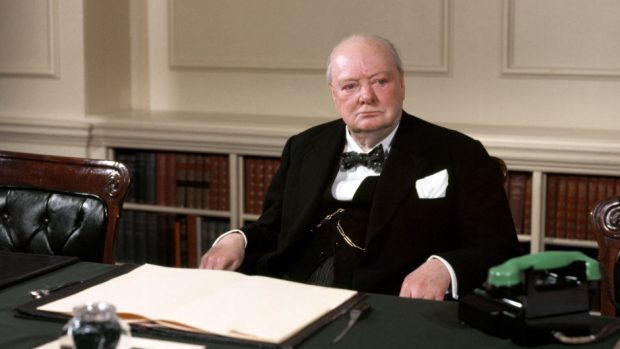The British public switched on their radio sets on the morning of September 3, 1939, with a mixture of weary resignation and the sense that, for many of them, life would never be the same again.
They knew that diplomatic talks had failed and, from the moment the news emerged that Hitler’s troops had invaded Poland two days earlier, war was inevitable.
At 11.15am, the Prime Minister, Neville Chamberlain, announced the British deadline for the withdrawal of German troops from Poland had expired.
He then confirmed that the British ambassador to Berlin had handed a final note to the German government that morning, stating that unless it announced plans to withdraw from Poland by 11am, a state of war would exist between the two countries.
Mr Chamberlain continued: “I have to tell you now that no such undertaking has been received and, consequently, this country is at war with Germany.”
King George called upon “my people at home and my peoples across the seas to stand calm, firm and united in this time of trial”.
He added: “The task will be hard. There may be dark days ahead and war can no longer be confined to the battlefield. But we can only do the right as we see the right and reverently commit our cause to God.”
A War Cabinet of nine members was established with two new ministers, including Winston Churchill as First Lord of the Admiralty, the post he had previously held at the outbreak of the First World War in 1914.
The National Service (Armed Forces) Act had already been passed, which made all men aged between 18 and 41 liable for conscription.
And, within days of Mr Chamberlain’s broadcast, the outbreak of war led to large-scale evacuation of women and children from London and other large cities.
A range of other emergency measures were also declared.
There was rejoicing in Warsaw and other Polish cities when their citizens discovered that Britain and France had entered the hostilities, but thousands of Poles died in the ensuing weeks while the build-up to the full-scale eruption of hostilities dragged on.
Indeed, in the months leading up to the New Year, there were no air raids during the period which has now become known as the “phoney war” or the “twilight war” and many evacuees subsequently returned home.
Fighting on the mainland only began in earnest when Germany attacked Norway in April 1940, followed by the Low Countries and finally France in June.
Yet, across the north and north-east of Scotland, the shadow boxing did not mean there wasn’t massive upheaval in so many families’ lives.
The official history of Gordon Highlanders emphasised the slightly surreal atmosphere that surrounded the early days in the conflict, which ultimately raged in every corner of the globe, with millions of soldiers and civilians killed, injured and displaced, as the Bren gun gave way to the terrifying development of V-2 missiles and nuclear bombs.
That lay ahead. But as the official record related, there were other issues for the troops.
It said: “Arras [in France] was reached on September 30 and here, the Gordons suffered a minor catastrophe.
“Before beginning the two hours’ march to Neuville, the opportunity was taken for a grand brew-up of tea – which proved undrinkable.
“Salt had been added instead of sugar.”
Warsaw fell to the Nazis on September 27 and Hitler could now concentrate on mounting his great offensive.
But he devised his plans methodically, even as British troops from Orkney to Oban and Braemar to Buckie prepared for the long haul.
One account of their privations stated: “The British soldier is used to hardship and monotony, but only those who were in France and Belgium can appreciate the depressing conditions during the winter of 1939-40.
“Heavy rains were followed by frost and snow, thaw and frost again.
“To keep the new defences intact often seemed a hopeless task.
“Everything was hampered by the bitter weather and life was rendered more harassing by the black-out regulations.”
That was as good as it got for many of the serving personnel.
They and their comrades on the ground and families at home were forced to wait for the war to strike with its full intensity.
When it did, it affected everybody in its path.
